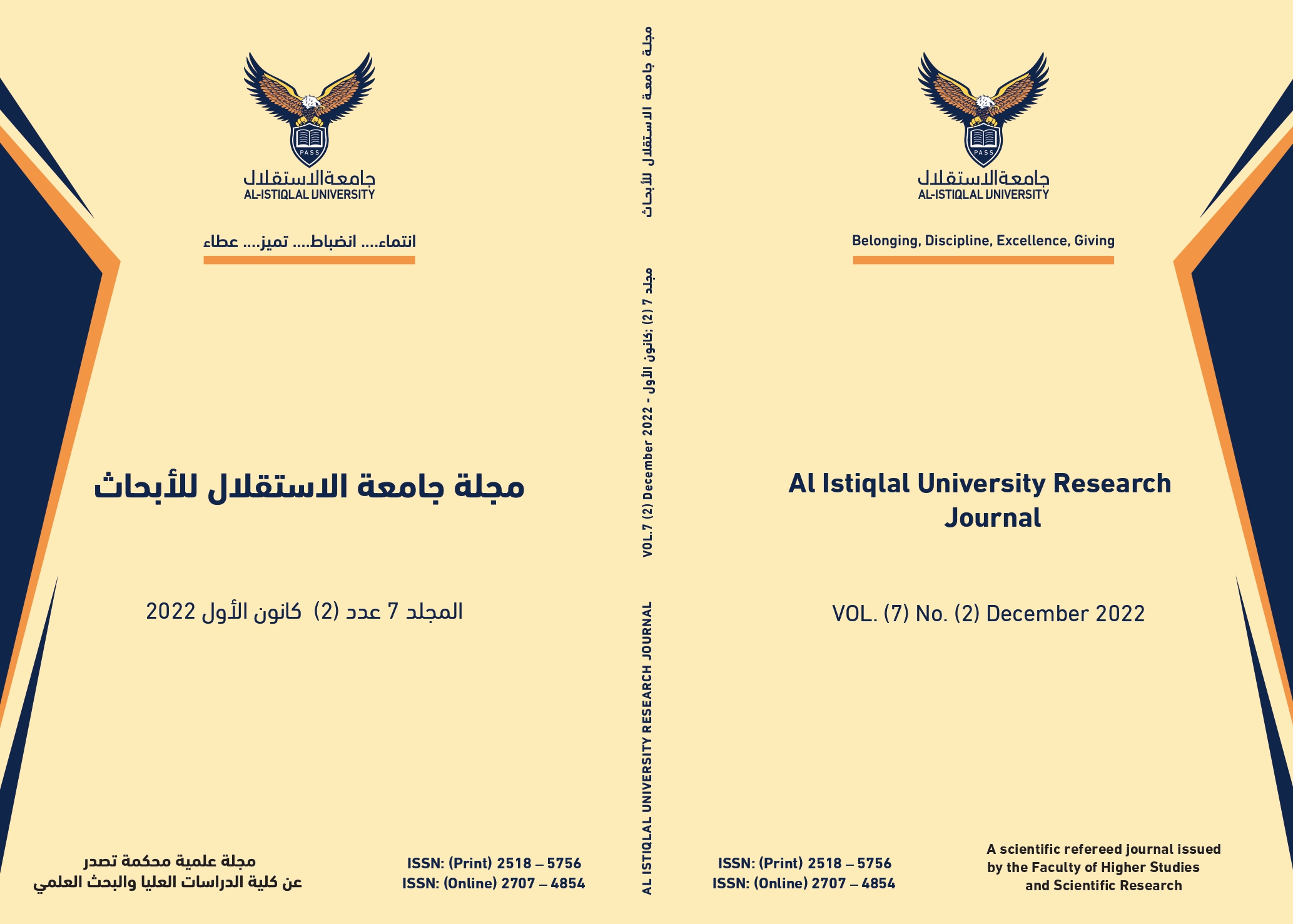Abstract
Incarceration poetry is a literary work that depicts the hardships of the poets and the individuals who experience imprisonment in a manner comparable to their own. However, for detained Palestinian poets Mahmoud Darwish, Samih Al-Qasim, and other intellectuals, this genre of poetry is not only a portrayal of traumas and tragedies but also an infused factual basis of the genuine enthusiasm of rebellion and the strive of voiceless Palestinians to open the gates to hope, liberty, and triumph. This study, which combines analytical and descriptive approaches, examines how devoted poets have utilized profound language abilities to address the themes of adversity and agony in their prison poetry. The study supports the layer efficacy of poetic devices to comprehend the deeper multiple meanings in literary works. The extensive use of symbolism in poems shows that the authors paid attention to soft rhythms to provide the reader with a tranquil and soothing environment. Sentences and imperatives are linked at the grammatical level, which helps to express the reality and the fighters' sentiments. The poet's language's sensory images perfectly capture the pain of a Palestinian detainee from a rhyming perspective. However, when viewed ideologically, their poems portray the everlasting faith of a prisoner soldier who believes in the strength of resistance and the victory that follows.

This work is licensed under a Creative Commons Attribution-ShareAlike 4.0 International License.
Copyright (c) 2023 Al Istiqlal University Research Journal




